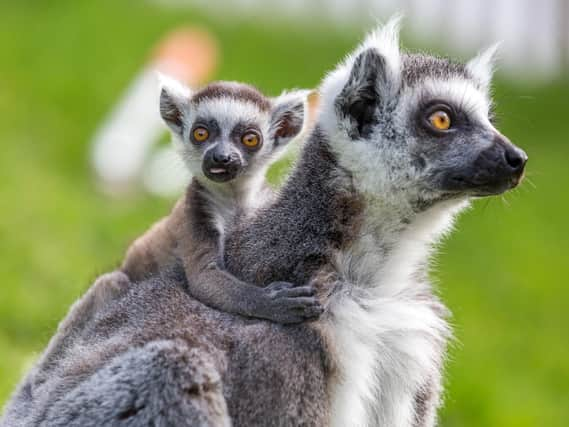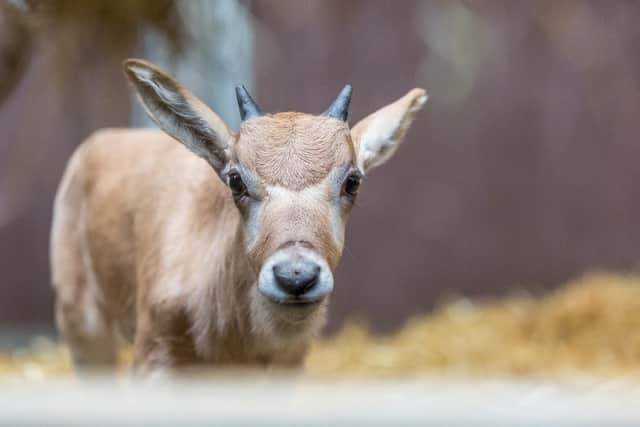Summer baby boom at Woburn Safari Park


Discover a couple of cheeky young lemurs in the walk-through Land of the Lemurs enclosure, rare Vietnamese Sika deer calves, little ‘joeys’ peering out from their mother’s pouches, several baby bison, three baby Barbary Macaque monkeys, and adorable Eland and Addax antelope calves.
Seven-year old Ring-tailed lemur mum Kirindy has a lot on her hands this summer after giving birth to a beautiful baby boy. Named Rakoto, the new-born lives in the walk-through Land of the Lemurs enclosure, which he shares with the lemur troop and another as-yet unnamed youngster who was recently born to mother Sambava.
Advertisement
Hide AdAdvertisement
Hide AdKeepers have welcomed three new Vietnamese sika deer calves that live in a paddock with the North American bison herd.


The Sika deer live as a natural herd and for the first few weeks of the calves' lives their mothers will tuck them away in the paddock, which means that the keepers end up playing a game of 'hide and seek' every morning to check that the youngsters are well. Extinct in the wild, Sika deer are part of the European Endangered Species Programme (EEP), so any males born into the herd may be moved to other animal collections in the future to continue the important breeding programme.
It is always ‘big’ news when keepers welcome an Eland calf to the park, the largest of all the antelope species.
Female Nicky became a mother to a young calf out in the African Reserves section of the park in April and the baby was discovered in the morning by keepers. The new-born could eventually grow up to be six feet tall. For now, mum will instinctively hide the calf away from predators during the day in a secluded area, returning periodically to feed and care for the calf.
Advertisement
Hide AdAdvertisement
Hide AdNew babies can be spotted in the Australian Walkabout enclosure in the Foot Safari, home to Red necked wallabies and Greater rhea. Some of the little 'joeys' are still very small and hairless, spending all their time in their mother's pouches, but lucky visitors will see their little faces taking a peek outside! As the youngsters get bigger, they will begin to spend more time exploring on their own.
The growing troop of Barbary macaque monkeys in African Forest has welcomed three new-borns to the group, with first time mother Mwanga and experienced mothers Jemelia and Gara all caring for the tiny youngsters. With multiple competing alpha males living in the group, the likely fathers of the babies will be either of the largest males; Frank or Belinga.
The Addax is a critically endangered species and there are thought to be less than 500 left in the wild. So keepers were thrilled when female Amelie became a mother in late March. Just a couple of days later keepers were again overjoyed when female Forest also became a mum to a beautiful female calf. With the weather getting warmer, the calves will be out in their paddock next to the Somali wild ass.
For over a century, Woburn has been home to majestic North American bison and visitors to the park will be awe-struck by these beautiful creatures as they graze in the their spacious 16-acre paddock, on the approach to the Safari Park. Over the last few weeks, keepers have welcomed the birth of a number of calves, so visitors should keep their eyes peeled as they grow older and come out to play.
To find out more, visit www.woburnsafari.co.uk/news